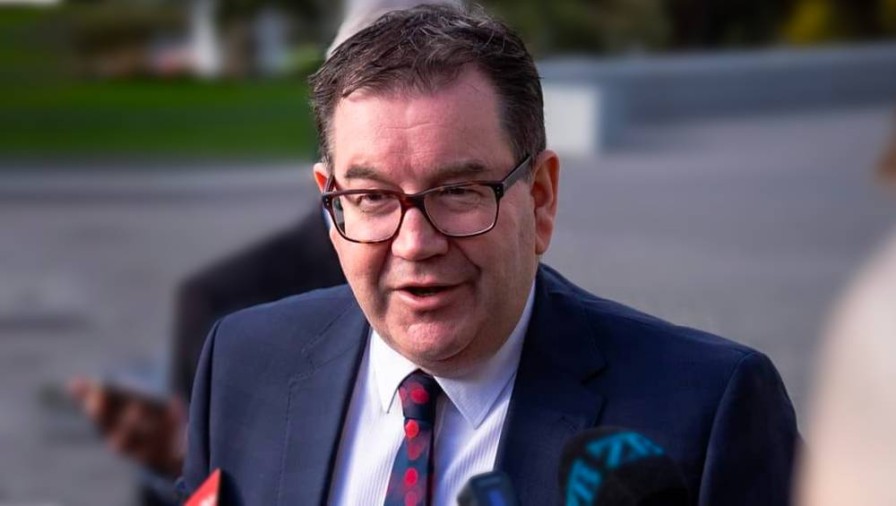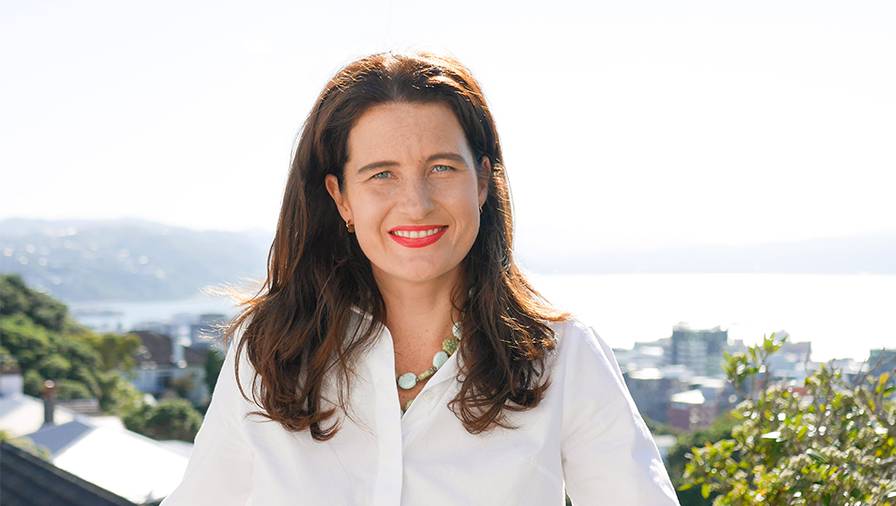Polls again, more roads, fiscal holes, the election campaign
ANALYSIS: Poor polling was not the Government’s only challenge this week.
NBR political editor Brent Edwards speaks with Grant Walker.
ANALYSIS: Poor polling was not the Government’s only challenge this week.
NBR political editor Brent Edwards speaks with Grant Walker.
The Labour Party got a reminder this week of just how difficult it will be to win a third term in government.
Two polls – Roy Morgan and Newshub Reid Research – had bad news for the Government and reinforce a trend that has the centre-left parties trailing those on the centre-right. In the Newshub Reid Research poll, National got 36.6%, Labour 32.3%, Act 12.1%, the Green Party 9.6%, Te Paati Māori 2.7%, New Zealand First 4.1%, and the Opportunities Party 1.5%.
That is one poll but, on those numbers, about 10 current Labour MPs will be looking for a new job after the election. Labour slid 3.6 percentage points compared with the previous Newshub Reid Research poll and National rose by 1.3 points. If that were the result, National and Act could form a government with 63 seats out of 120.
But it would not take much of a shift in support in the election for National and Act’s apparent advantage to be lost. That might explain why Act leader David Seymour has been so emphatic about ruling out working with New Zealand First after the election, telling Stuff it was impossible to see Act ministers sitting around the Cabinet table with New Zealand First. That might be aimed at sending a message to wavering voters that if they want to change the Government they need to vote for Act or National, not New Zealand First.
What would that mean, though, if by chance National and Act fell short of the votes needed to form a government and could only do so with Winston Peters’ support? Peters himself has already ruled out working with Labour again, giving New Zealand First only one option when it comes to forming a government. It must be able to reach a deal with National.
This scenario is not out of the question. As has happened in previous elections, support for New Zealand First seems to be surging in the final few months before the election and there is a strong chance it will do what it did in 2011 and make it back into Parliament after falling short of the 5% party vote threshold at the previous election.

Could NZ First leader Winston Peters be a player again after the election?
Poor polling was not the only challenge the Government dealt with this week. It also considered and ultimately accepted the recommendation from the Independent Arbitration Panel to increase secondary teachers’ pay by 14.5% by the end of next year. The increase would come in three chunks and has been greeted positively by the union representing teachers, the PPTA.
The Government had little option but to accept the proposal, which represents a bigger increase than the Ministry of Education was offering. It means the Government must find an extra $690 million to pay for the bigger increase, at a time when tax revenue is falling, and it faces Opposition claims that it now has a big fiscal hole in its budget. Money for the teachers’ pay increase will come from finding savings in the existing education vote as well as putting aside more money in next year’s Budget for the rise.
NBR presenter Grant Walker suggests that increased spending will mean less money available for National’s multi-billion-dollar road building plan should it lead the Government after the October 14 election.
National’s $24b plan would have four lanes from Whangārei to Tauranga; build Mill Road in Auckland; Petone to Granada and the Cross Valley Link in Wellington; and Belfast to Pegasus and the Woodend bypass in Christchurch.
But Transport Minister David Parker said National’s costings were too low and it would cost much more. Even Act’s transport spokesperson Simon Court described National’s policy as a “wishlist”. National will continue to face plenty of criticism of its costings in the lead-up to the election as Labour tries to undermine its claim to be a better economic and fiscal manager than Labour.
At the same time, National had to later make clear that completing the Whangārei to Tauranga four-lane road link would not happen until its third term in government. But it would pay for its roading plans through a range of mechanisms, including using congestion charges.
National though had its own opportunity to attack Labour’s costings, when news broke that Finance Minister Grant Robertson had met with departmental chief executives and pressed on them the need to find further savings.

Finance Minister Grant Robertson.
National’s Nicola Willis wanted to know how big the fiscal hole was, with Seymour suggesting the deficit could be as big as $30b. There is no substance to back that claim up, but Robertson pointed out he had been saying for some time restraint was needed and that on July 5 he had put out a press statement reiterating that point again after the latest government accounts showed tax revenue was falling short of the Treasury’s forecast.
And Robertson was helped by Moody’s releasing its latest review of the country’s credit rating and leaving it unchanged at AAA, stating the credit rating reflected New Zealand’s very strong institutions, sustained policy effectiveness, and a healthy fiscal position when compared with other countries.
The argument did at least offer a moment of humour when Willis asked Robertson about it in Parliament on Thursday.
“How big is his hole?” she asked, before sitting back down in embarrassment as MPs laughed.
Robertson’s reply was to the point: “That is not in the public interest, I can assure you.”

National Party finance spokesperson Nicola Willis.
Meanwhile, Walker asks if Robertson is just being clever when he keeps saying the Government is not looking at a particular policy initiative. But that does not mean the Labour Party is not looking at it, like, for example, removing GST on fresh fruit and vegetables.
Robertson is strictly correct. In the lead-up to the election there will be matters the Government is not looking at, but which Labour will. If Labour is then able to form the next government, presumably what was Labour policy for the election would then become government policy.
It is just as confusing when Robertson puts out statements largely as Finance Minister, but increasingly now as Labour’s finance spokesperson. Much of this confusion should dissipate once Parliament rises for the election and the Government is largely in caretaker mode as its ministers hit the campaign trail as Labour spokespeople.
Walker also wonders, though, if this election campaign will be different because of rising concerns about personal security. Tensions do appear to have ratcheted up following the Covid-19 lockdowns and last year’s occupation of Parliament – ostensibly in opposition to vaccine mandates – unleashed more vitriol against politicians. Some – often women and Māori candidates – have spoken of the increased threat level they face. It largely presents itself as online abuse and threats but surely must raise questions about whether at least some candidates need more security.
In the face of significant threats, some candidates might curtail their interactions with the voters whose support they are wooing.
Brent Edwards is NBR’s political editor.